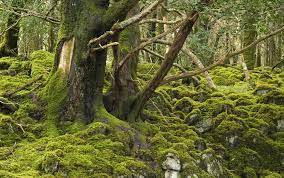Nature has a remarkable ability to balance itself. This is due to a number of factors, including the following:
- Ecological succession: Ecological succession is the process by which a community of organisms changes over time. This change is often caused by disturbances, such as fires or floods. After a disturbance, the first organisms to colonize the area are usually pioneer species. These species are able to survive in harsh conditions. As the environment becomes more stable, other species, such as climax species, begin to colonize the area. Climax species are able to thrive in the current environment.

- Predation: Predation is a natural process that helps to keep populations of prey species in check. When the prey population becomes too large, predators help to reduce the population size. This helps to prevent the prey population from overgrazing or overexploiting resources.
- Competition: Competition is another natural process that helps to balance nature. When two or more species compete for the same resources, the species that is better adapted to the environment will typically outcompete the others. This helps to ensure that the resources are used efficiently.
- Dispersal: Dispersal is the process by which organisms move from one area to another. This can help to prevent populations from becoming too large in one area and too small in another.
These are just a few of the ways that nature balances itself. These processes work together to create a stable and resilient ecosystem. However, human activities can disrupt these processes and lead to environmental problems. For example, deforestation can disrupt the process of ecological succession and lead to soil erosion. Pollution can disrupt the food chain and lead to the decline of populations. It is important to understand how nature works so that we can minimize our impact on the environment.